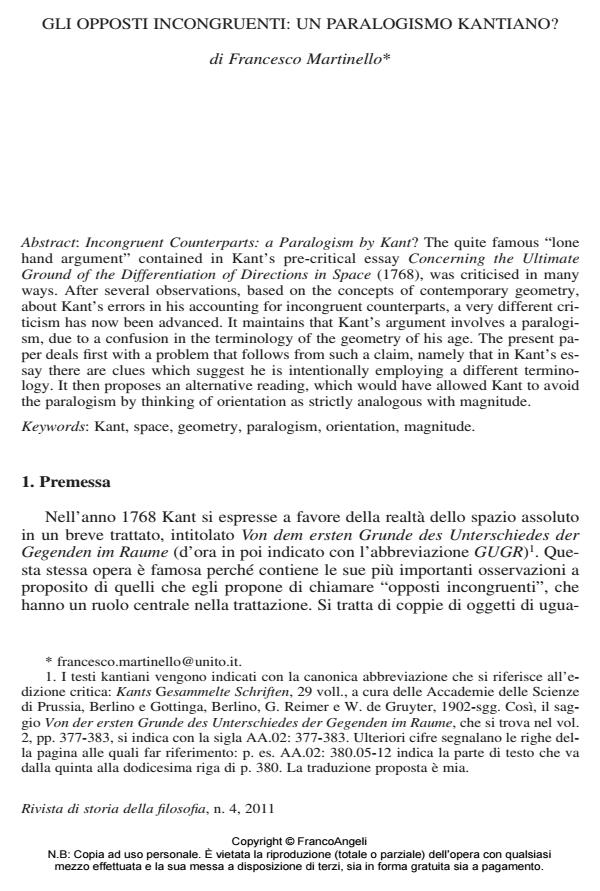Gli opposti incongruenti: un paralogismo kantiano?
Titolo Rivista RIVISTA DI STORIA DELLA FILOSOFIA
Autori/Curatori Francesco Martinello
Anno di pubblicazione 2011 Fascicolo 2011/4
Lingua Italiano Numero pagine 14 P. 679-692 Dimensione file 492 KB
DOI 10.3280/SF2011-004004
Il DOI è il codice a barre della proprietà intellettuale: per saperne di più
clicca qui
Qui sotto puoi vedere in anteprima la prima pagina di questo articolo.
Se questo articolo ti interessa, lo puoi acquistare (e scaricare in formato pdf) seguendo le facili indicazioni per acquistare il download credit. Acquista Download Credits per scaricare questo Articolo in formato PDF

FrancoAngeli è membro della Publishers International Linking Association, Inc (PILA), associazione indipendente e non profit per facilitare (attraverso i servizi tecnologici implementati da CrossRef.org) l’accesso degli studiosi ai contenuti digitali nelle pubblicazioni professionali e scientifiche.
The quite famous "lone hand argument" contained in Kant’s pre-critical essay Concerning the Ultimate Ground of the Differentiation of Directions in Space (1768), was criticised in many ways. After several observations, based on the concepts of contemporary geometry, about Kant’s errors in his accounting for incongruent counterparts, a very different criticism has now been advanced. It maintains that Kant’s argument involves a paralogism, due to a confusion in the terminology of the geometry of his age. The present paper deals first with a problem that follows from such a claim, namely that in Kant’s essay there are clues which suggest he is intentionally employing a different terminology. It then proposes an alternative reading, which would have allowed Kant to avoid the paralogism by thinking of orientation as strictly analogous with magnitude.
Parole chiave:Kant, space, geometry, paralogism, orientation, magnitude
Francesco Martinello, Gli opposti incongruenti: un paralogismo kantiano? in "RIVISTA DI STORIA DELLA FILOSOFIA" 4/2011, pp 679-692, DOI: 10.3280/SF2011-004004